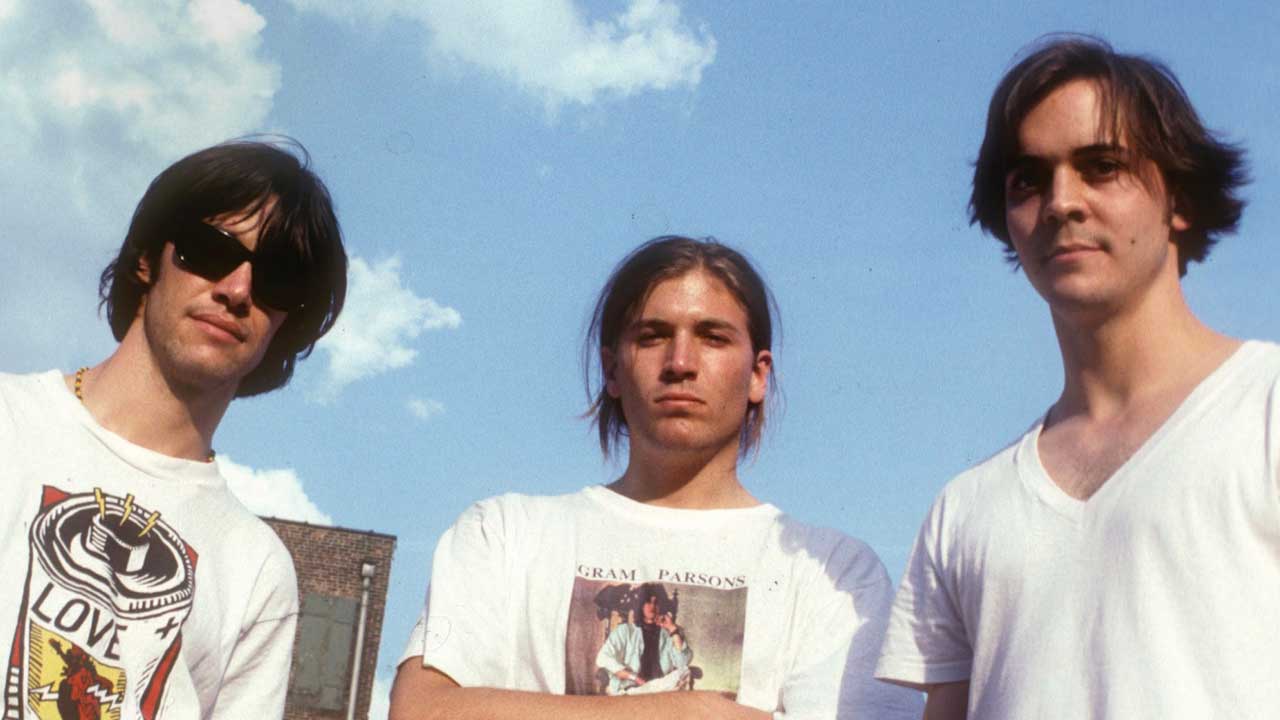What happened at AC/DC's first British gig
On April 23, 1976, AC/DC played live in the UK for the first time. Classic Rock's Malcolm Dome was there

Select the newsletters you’d like to receive. Then, add your email to sign up.
You are now subscribed
Your newsletter sign-up was successful
Want to add more newsletters?

Every Friday
Louder
Louder’s weekly newsletter is jam-packed with the team’s personal highlights from the last seven days, including features, breaking news, reviews and tons of juicy exclusives from the world of alternative music.

Every Friday
Classic Rock
The Classic Rock newsletter is an essential read for the discerning rock fan. Every week we bring you the news, reviews and the very best features and interviews from our extensive archive. Written by rock fans for rock fans.

Every Friday
Metal Hammer
For the last four decades Metal Hammer has been the world’s greatest metal magazine. Created by metalheads for metalheads, ‘Hammer takes you behind the scenes, closer to the action, and nearer to the bands that you love the most.

Every Friday
Prog
The Prog newsletter brings you the very best of Prog Magazine and our website, every Friday. We'll deliver you the very latest news from the Prog universe, informative features and archive material from Prog’s impressive vault.
The Red Cow was an unpretentious West London boozer-cum-venue, with a reputation for supporting young bands. The action took place at the back of the pub, in a sweatbox of a room with an official capacity of 250 and toilets that were in a constant state of disarray due to a stream of people clambering in through the windows to avoid paying to get in. It was here, on April 23, 1976, that AC/DC played their very first show outside Australia.
At the time, the British music scene was in a state of flux. Pub rock was thriving, though punk was beginning to assert itself. A look at the Red Cow’s listings for April 1976 shows what was going on at the grass- roots level: Bees Make Honey, among the best of the pub rockers, were playing, as were Ian Dury & The Blockheads. Some gigs cost 50p to get into, others were free.
AC/DC’s British debut was one of the latter. Their two albums, High Voltage and TNT, were only available on import in the UK and any buzz was confined to the country’s more clued-up rock fans. The band may have been stars back home in Oz, but there was work to be done overseas.
Their label, Atlantic, knew it had to start small. They put the band in a shared house in Richmond, South London, which would be their base for the next few months. And it was why they’d booked the low-key Red Cow for their first UK gig.
As was standard, the band played two sets, with a brief interlude in between. Before the first set, their prospects looked unpromising. Barely 30 people were in the back room – a mix of fledgling punks, student types and the odd long-hair, the usual mix for the time. Nobody really knew what to expect as the band ambled on stage. Angus was instantly the focus of attention. Word was out that he dressed as schoolboy, but tonight he actually looked like a 12-year-old who had skipped homework to play. As soon as they launched into Live Wire, all bets were off. The set was short – just seven songs – but it was instantly obvious that the band were a cut above the usual pub rock fodder.
Afterwards Bon came to the bar, chatting to a few of us who had hung around. He even bought everyone a drink – or rather got them gratis from the bemused barman – then disappeared with two girls.
By the second set, word had got around and the place was packed. The band clearly thrived on the audience’s buzz, and their own energy levels rose even further. By the end, any worries about Britain being a tough nut to crack had evaporated. Such a flying start gave the band a huge injection of confidence.
Sign up below to get the latest from Classic Rock, plus exclusive special offers, direct to your inbox!
Later that month, they embarked on the legendary Lock Up Your Daughters pub tour, complete with nightly Angus lookalike competitions. They spent most of 1976 on the road, graduating to small theatres and halls, such as the Lyceum Ballroom in London. The interest around them snowballed, helped by the fact that they attracted the attentions of both punk and metal fans.
The band’s last UK gig of that year was in Oxford on November 15, after which they returned to Australia for a triumphant homecoming tour. The naysayers who had said they’d come back with their tails between their legs had been proved wrong. The only way for AC/DC from here was up.
This was originally published in Classic Rock 191.
AC/DC Red Cow Setlist
Live Wire
She's Got Balls
It's a Long Way to the Top (If You Wanna Rock 'n' Roll)
Soul Stripper
Can I Sit Next to You Girl
The Jack
High Voltage
T.N.T.
Baby, Please Don't Go
Malcolm Dome had an illustrious and celebrated career which stretched back to working for Record Mirror magazine in the late 70s and Metal Fury in the early 80s before joining Kerrang! at its launch in 1981. His first book, Encyclopedia Metallica, published in 1981, may have been the inspiration for the name of a certain band formed that same year. Dome is also credited with inventing the term "thrash metal" while writing about the Anthrax song Metal Thrashing Mad in 1984. With the launch of Classic Rock magazine in 1998 he became involved with that title, sister magazine Metal Hammer, and was a contributor to Prog magazine since its inception in 2009. He died in 2021.

